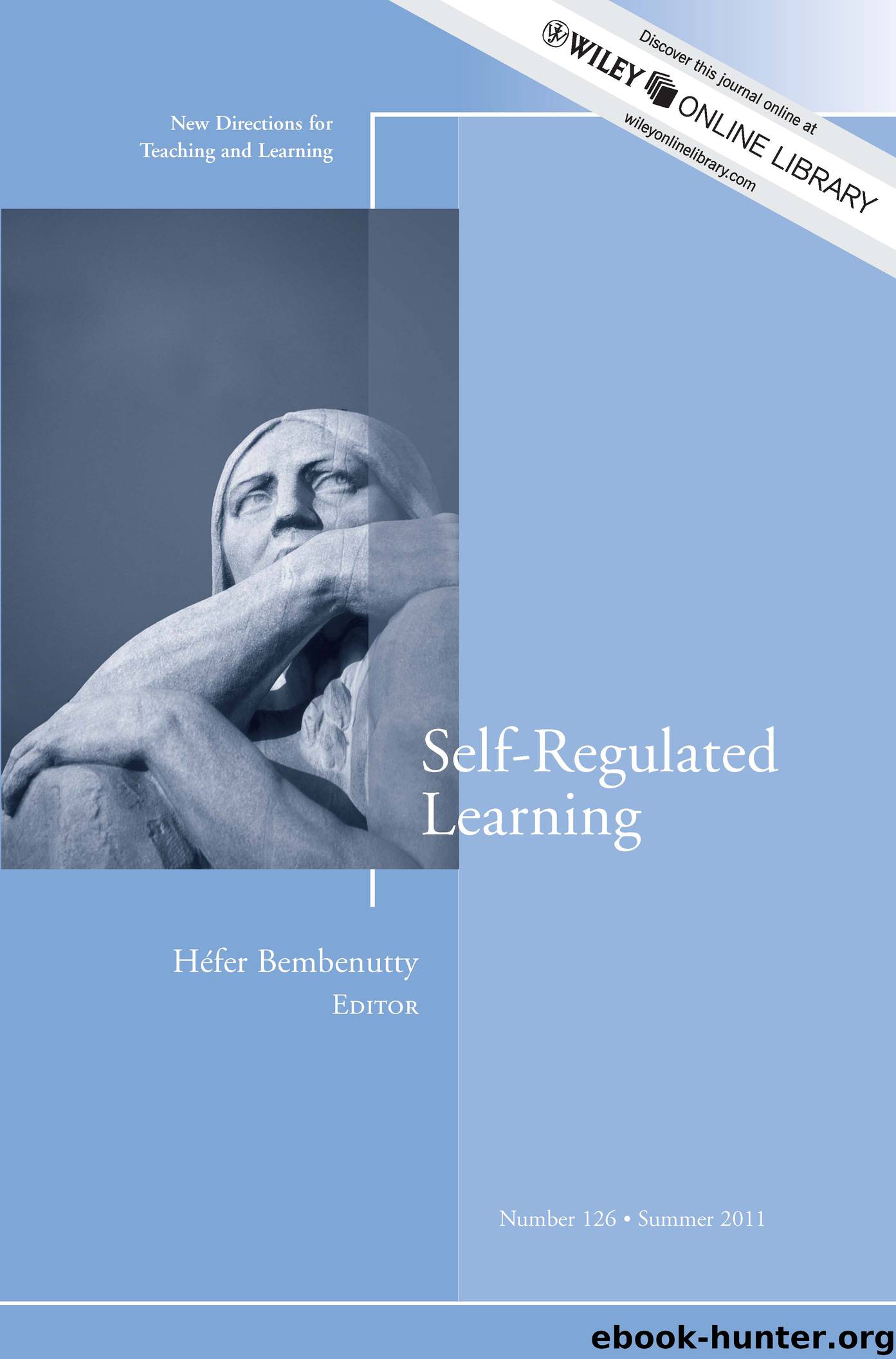Self-Regulated Learning by Héfer Bembenutty

Author:Héfer Bembenutty
Language: eng
Format: epub
Publisher: Jossey-Bass
Published: 2011-06-13T16:00:00+00:00
7
Resistance and Disidentification in Reflective Practice with Preservice Teaching Interns
Michael Middleton, Eleanor Abrams, Jayson Seaman
This chapter examines two case studies of student teaching interns to identify contextual factors that may enhance or inhibit their use of self-reflective practices.
Teachers who engage in reflective practices are better able to recognize the complexity of teaching (Ogberg and McCutcheon, 1987), use judgment to choose appropriate strategies for teaching and learning in their specific contexts (Day, 1999), and experience improved self-confidence (Finkel and Fletcher, 2002). For these reasons, many teacher education programs emphasize self-reflective practice (LaBoskey, 1994; Russell, 1997).
Self-reflective practice could be considered a form of self-regulation. Self-regulation is a cognitive process by which an individual monitors and changes his or her own beliefs, affect, motivation, and behavior to meet a goal (Zimmerman, 1998). Such a thoughtful approach to a learning situation involves goal setting and planning, which are important for teachers as they try to meet the needs of diverse learners. In this chapter, we examine case studies of student teaching interns to identify contextual factors that may enhance or inhibit their use of self-reflective practices.
Download
This site does not store any files on its server. We only index and link to content provided by other sites. Please contact the content providers to delete copyright contents if any and email us, we'll remove relevant links or contents immediately.
| Administration | Assessment |
| Educational Psychology | Experimental Methods |
| History | Language Experience Approach |
| Philosophy & Social Aspects | Reform & Policy |
| Research |
The Art of Coaching Workbook by Elena Aguilar(51203)
Trainspotting by Irvine Welsh(21679)
Twilight of the Idols With the Antichrist and Ecce Homo by Friedrich Nietzsche(18638)
Fangirl by Rainbow Rowell(9259)
Periodization Training for Sports by Tudor Bompa(8276)
Change Your Questions, Change Your Life by Marilee Adams(7786)
This Is How You Lose Her by Junot Diaz(6891)
Asking the Right Questions: A Guide to Critical Thinking by M. Neil Browne & Stuart M. Keeley(5778)
Grit by Angela Duckworth(5617)
Red Sparrow by Jason Matthews(5478)
Paper Towns by Green John(5194)
Room 212 by Kate Stewart(5129)
Ken Follett - World without end by Ken Follett(4737)
Housekeeping by Marilynne Robinson(4453)
The Sports Rules Book by Human Kinetics(4393)
Papillon (English) by Henri Charrière(4277)
Double Down (Diary of a Wimpy Kid Book 11) by Jeff Kinney(4275)
The Motorcycle Diaries by Ernesto Che Guevara(4105)
Exercise Technique Manual for Resistance Training by National Strength & Conditioning Association(4075)
